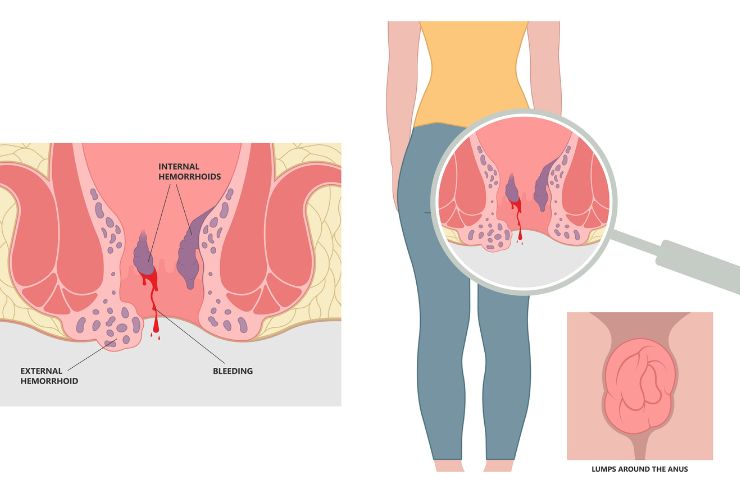-
Helpline

Rectal bleeding refers to the passage of blood through the rectum, which can appear bright red or maroon in color. This symptom can stem from various sources within the gastrointestinal tract, including:
Hemorrhoids: Swollen and inflamed blood vessels in the rectum or anus, often causing pain and bleeding during bowel movements.
Anal Fissures: Tears or cracks in the lining of the anus, typically caused by passing hard or large stools.
Inflammatory Bowel Disease (IBD): Conditions like Crohn’s disease and ulcerative colitis, which cause inflammation and ulceration in the digestive tract.
Diverticulosis: Small pouches that can form in the walls of the colon, which may bleed if they become inflamed or infected.
Colon Polyps or Cancer: Abnormal growths in the colon or rectum that can bleed, especially with bowel movements.
Specialized Care at our Clinic
At the Rectal Bleed Clinic, patients undergo a thorough evaluation conducted by our experienced gastroenterologists and specialists. Our approach includes:
Comprehensive Assessment: Detailed medical history review and physical examination to determine the possible causes of rectal bleeding.
Diagnostic Procedures: Utilization of advanced diagnostic tools such as colonoscopy, sigmoidoscopy, and imaging studies to visualize the rectum and colon, identify any abnormalities, and obtain tissue samples if needed for further evaluation.
Individualized Treatment Plans: Personalized treatment plans based on the underlying cause of rectal bleeding, which may include medical management, minimally invasive procedures, or surgical intervention as necessary.
Common Treatments Offered
Depending on the diagnosis, treatments offered at our clinic may include:
Hemorrhoid Treatment: Non-surgical options such as dietary modifications, topical medications, rubber band ligation, or infrared coagulation for hemorrhoids.
Fissure Management: Topical medications to promote healing and relieve symptoms, along with dietary changes to soften stools.
Inflammatory Bowel Disease (IBD) Management: Medications to control inflammation and maintain remission, along with lifestyle modifications and dietary counseling.
Colon Polyp Removal: During colonoscopy, polyps can be identified and removed to reduce the risk of developing colorectal cancer.
Surgical Interventions: Advanced procedures for conditions like diverticulosis or colorectal cancer, performed by our skilled surgical team.